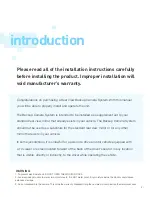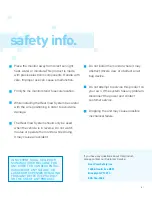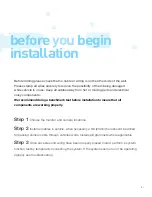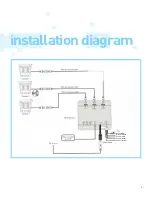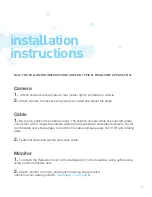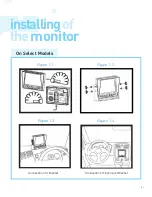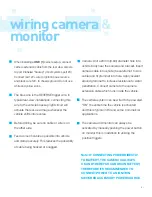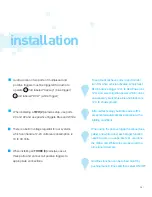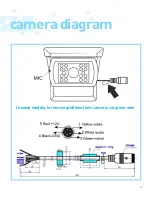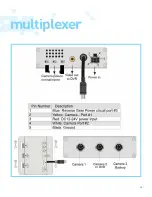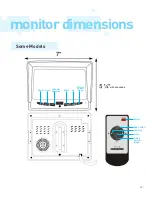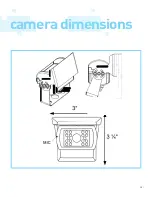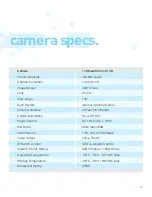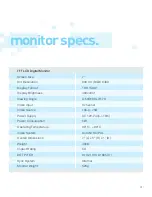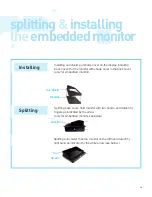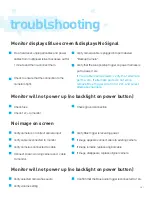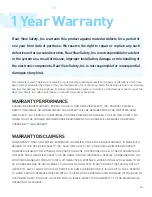
9
Note: If CoNNeCTING poWeR dIReCTly
To bATTeRy, The CAMeRA IS AlWAyS
oN ANd TheRefoR CAN dRAIN bATTeRy,
TheRefoRe ITS ReCoMMeNded To
CoNNeCT poWeR To AN IGNITIoN
SWITChed ACCeSSoRy poWeR SouRCe.
When installing a oNe (1) camera setup, connect
camera extension cable from the rear view camera
to port # labeled “backup” (most systems port #3)
Connect red 12V+ wire to ignition power source
and black wire 12V- to chassis ground. Do not use
white and yellow wires.
The blue wire is the REVERSE trigger wire. In
typical rear-view installations, connecting this
wire to the vehicle’s backup light circuit will
activate the rear-view image whenever the
vehicle shifts into reverse.
Before drilling, be sure no cable or wire is on
the other side.
Feed as much cable as possible into vehicle
and clamp securely. This reduces the possibility
of cable being hooked or snagged.
Camera: Drill a 20mm (0.8in) diameter hole into
vehicle body near the camera and bracket. Insert
camera cable into vehicle (be careful not to kink
cable) and fit grommet into hole. Apply sealant
around grommet to increase resistance to water
penetration. Connect camera to the camera
extension cable which runs inside the vehicle.
The camera system can be wired to be powered
“ON” the entire time the vehicle is activated
and this is typical in RV and some Commercial
applications.
The camera and monitor can always be
activated by manually pushing the power button
on monitor this is in addition to utilizing the
positive triggers.
wiring camera
&
monitor



